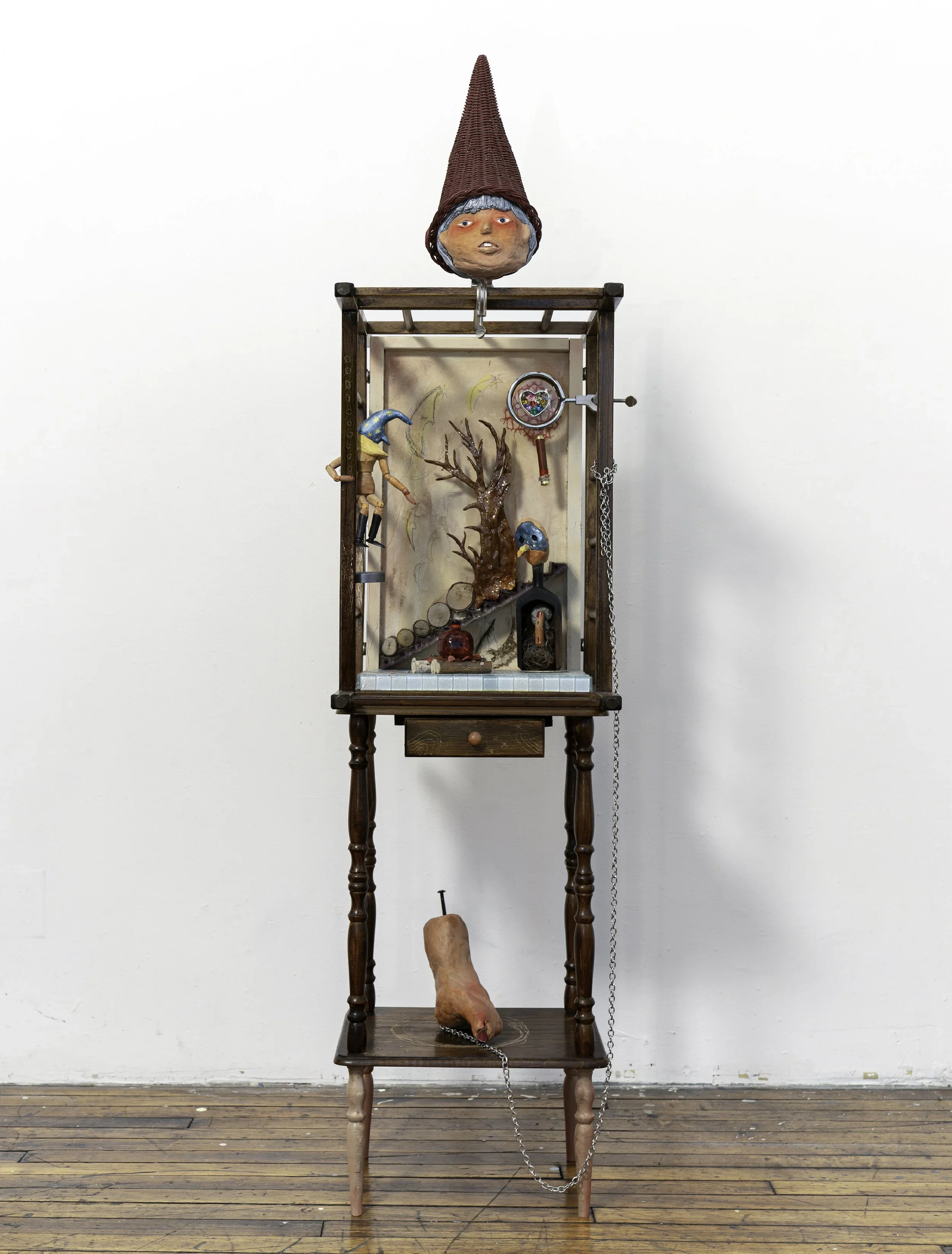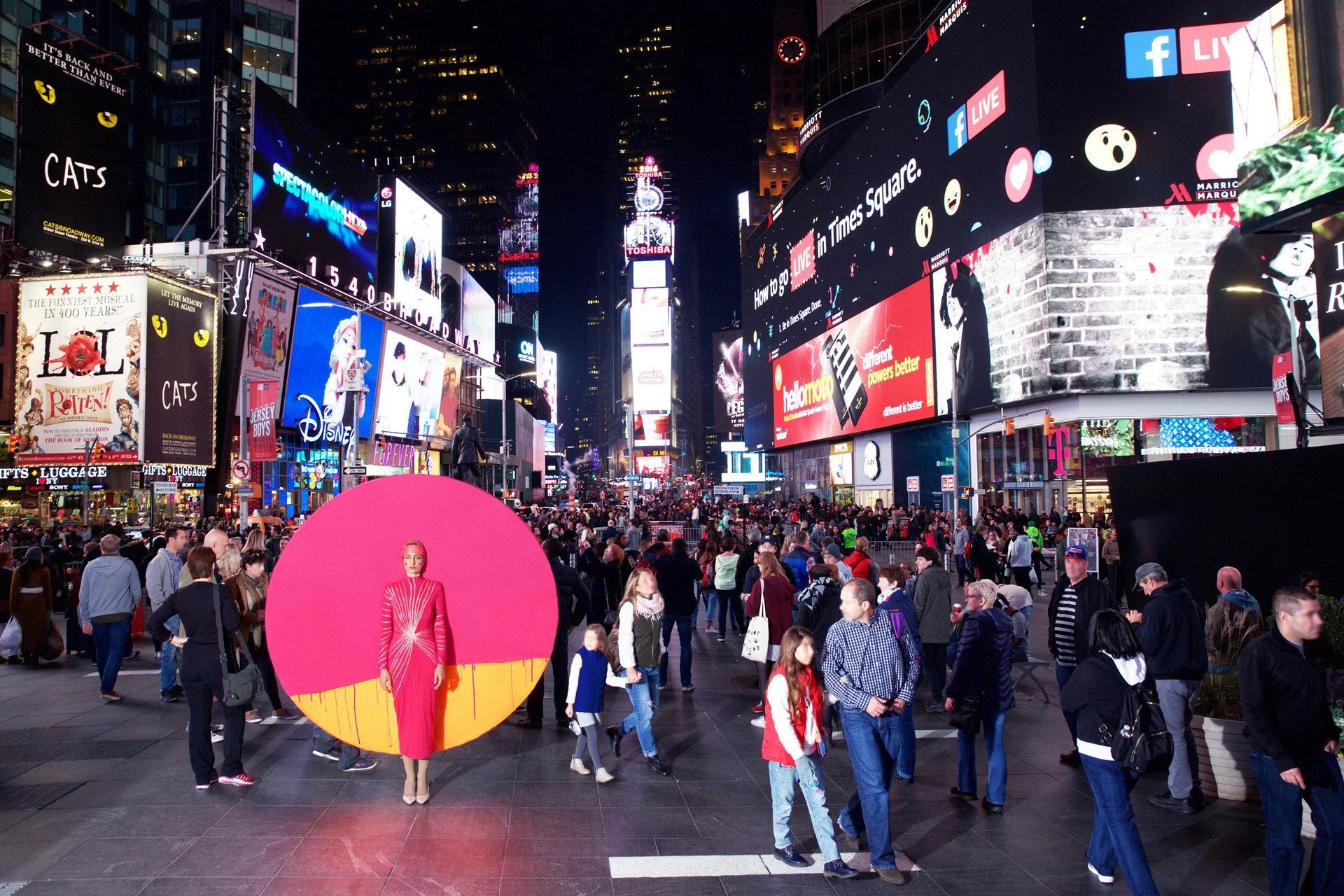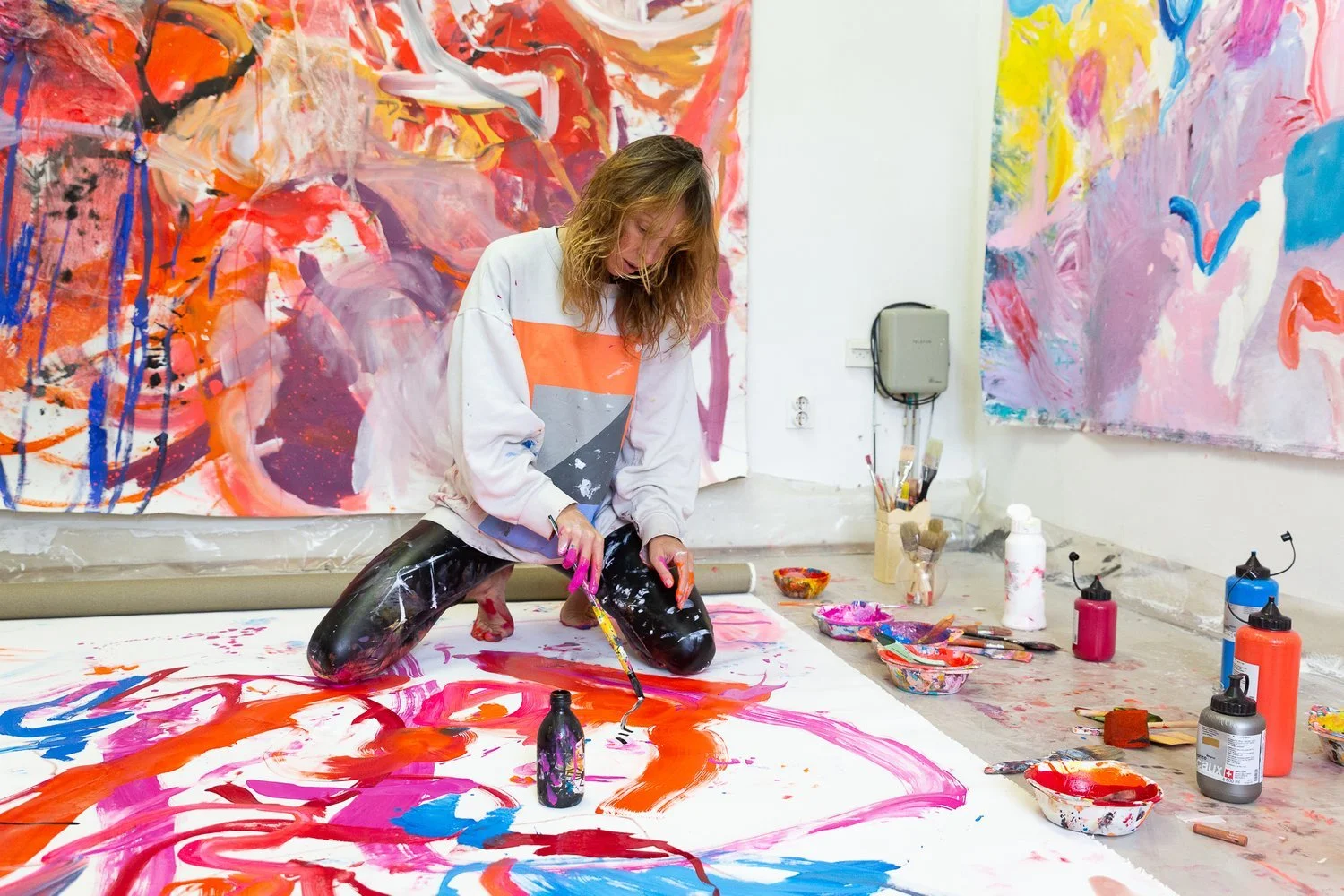10 Questions with Le Liu
Le Liu (b 1996) is a young Chinese emerging artist. In his last year as a student, he began to attract the attention of collectors from around the world. After graduating, he joined the 5th London Art Biennale and Affordable Art Fair London. Le gained a BA in Fine Art in 2019 at Hubie University at Wuhan, and a Master in Letters in Fine Art from The Glasgow School of Art UK, in 2021. He works and lives in Coatbridge, Scotland.
Le Liu - Portrait
ARTIST STATEMENT
Le Liu makes his paintings both figurative and abstract. His works are expressive with brush strokes and vivid in colour, in a constant flux between abstract and realistic modes. His works combine theory and practice through reading philosophies combined with his Eastern cultural heritage. He appreciates the works of the old masters and also studies contemporary artists: Rubens, Monet, Kooning, Jeanne Saville, and Cecily Brown. His sensuous treatment of the nude through combining dynamic colour and expressive brush shapes is his trademark.
Le Liu began painting "headless bodies" in 2020, feeling his work to become freer, more liberated from notions of identity when bodies lack heads and become devoid of individuality. Drawing nudes in different postures maintains a passion for the human for him. He persistently studies anatomy, seeking his motivation for being consistently concerned with 'headless bodies', originating his interpretation of Deleuze, or learning about the biblical story Adam and Eve and its omnipresence in classical art. Le Liu believes that when Eve ate the apple, she gained her freedom to think. Le Liu considers the phrase losing one's head as indicating freedom. Growing up and being educated in China, his work developed using traditional forms developed from traditional ideas. Simultaneously, he uses photoshop to edit his own pictures, placing modern heads on old master's paintings as a starting point, deconstructing with reference to Deleuze's "body without organs" theory, regarding the head is a signifier of personal identity, while simultaneously controlling the body's functions. In his painting, everybody's head is removed, it becomes more freely, and each body is connected but has no relationships. This is the visualization of Deleuze's Rhizome theory.
Out of pictures 5, Oil on canvas, 75x180x1.7 cm, 2021 © Le Liu
INTERVIEW
Let’s start with your background. How did you begin making art? And how did you develop into the artist you are today?
I started studying art at 15 years old in high school in China. We have an Art Class which is a group of students learning drawing and painting for going to university. For that, I bought some old masters landscapes books, classical type, and some Impressionism type, like Manet, Monte, and so on.
From high school to university, I always focused on basic training and all different life drawing and painting. It is important because it developed my skills and observation abilities. I always remember what Picasso said, “ It took me four years to paint like Raphael, but a lifetime to paint like a child.” What I understand is he already got the ability to paint like Raphael, then he can be ready to paint like a child or whatever he wants. So, I was basically learning from old masters at that time, like Rembrandt, Rubens, Sargent, and so on. I think it is because I learned from those masters, so I always want to go outside China to learn the art. So after that, I came to the UK, and my life totally changed. I tried lots of things: screen printing, etching, performance art, and videos, and I used different materials, wood, stone, clay, steel, tile, felt, and so on. However, during the Covid lockdown, all things became limited, so I went back to painting. For me, that is the easiest way I could keep doing art at those times. At first, I just painted what I used to do in China. Later, I wanted something different, so I painted headless bodies.
I Hope Half Of My Whole Life Was Just Above Water, Oil on canvas, 91x81x3.8 cm, 2022 © Le Liu
What do you wish you knew about contemporary art before you got started?
To be honest, I have wanted to learn more about contemporary art since my third year at university. My tutor guided me a little while preparing my portfolio for applying to Art school in the UK. And I started to read Frieze magazine. It was very edge for me at that time, and all my impressions about contemporary art came from there. It is a multidisciplinary, very exploratory, and experimental publication. But for that question, I only knew contemporary art after modern painting from the 20th century. So I wish I knew more contemporary artists instead of old masters.
You are still very young but have already had significant international experiences. What is your favorite experience as an artist so far?
Every experience makes me happy. For now, I am really looking forward to 2 coming shows, the group show at Glasgow School of Art and another one in Paris.
As you mention in your statement, in your work, you blend your Eastern cultural heritage with inspiration coming from Western masters, such as Rubens, Monet, Kooning, Jeanne Saville, and Cecily Brown. How did you develop this style?
I think my eastern cultural heritage influences the way that I live, drawing from Buddhism, Taoism, and Confucianism. I used to like to write Buddhist scripture every day, I read it loud, if, in Buddhist words, those headless bodies can be: "they will have wiped out false notions of an ego, a personality, a being, and a life, of Dharma and Not-Dharma". However, my paintings are oil paintings, they come from a western cultural heritage, so I use images to convey the spirituality I learned.
I love Rubens figures' paintings, especially mythological ones, as they are so beautiful and allegorical. I love Monet's colors, and I love Cecily Brown's abstract, erotic and vivid flesh. That is what I pursue. And Janney, her painting is contemporary classical to me. So I try to get what I like from theirs, I grab it, then I try to use it on my painting.
The Zoo, Oil on canvas, 151x242x1.8 cm, 2022 © Le Liu
Dry wind, Oil on canvas, 61x91x3.8 cm, 2022 © Le Liu
Can you tell us about the process of creating your work? How do you go from the first idea to the finished work?
I love old masters' paintings, and I love the flesh, so I mix these two things together. I love to use photoshop, and I think it is very good for me to make my digital sketch, no matter in colors or composition of the painting. For example, I love making yellow backgrounds because they are my childhood memory color. Then I painted it from the ground, layer by layer, just like using photoshop to make an image.
Tell us more about your headless bodies. Why did you choose not to represent the head of your characters? And what is the meaning behind this decision?
I knew I would become a figurative painter when I was a student at university. Perhaps, I got influenced by old masters from the Renaissance, as those nude paintings are beautiful and inspiring. Maybe I was already sick of boring portrait exercises as a student. So I like to cut the head off when I paint the body. Personally, the head is the most attractive part of the body. It is the controller of the body, and when it is out, the body becomes free. Because in this society, I think we are controlled by something in this world, and we are not really moving or thinking.
I started to paint headless bodies in 2020, during the lockdown, after reading many body theory and philosophy books and drawing and painting many singles. I got inspired by Socrates, because he was never afraid to drink poisoned wine; by Nietzsche and his superman's theory, and by Deleuze, and the rhizome, the body without organs theory, which exactly corresponds to my painting.
After that, I also questioned myself, what I think. Those philosophers' theories helped me, but they are theirs, not mine. So I started looking for my personal reason. That character was born during the covid lockdown time, maybe because I felt alone, so I needed companionship, or because I am not good at socializing with people, despite wanting to do it in my heart. I think no matter what the reason is, I want to paint that thing.
Life as dream, Oil on canvas, 101x202x3.8 cm, 2021 © Le Liu
What is the most challenging part of your work? And what is the most enjoyable?
As an artist, it is important to find my own style, the special characters, and elements in my artworks. This is not easy for me, it took me years to do that, and I am still developing it. I think it is a good way to learn from other artists or old masters because they also did that for years and are already in that position. However, sometimes I will become reliant on more and lose myself in it, so I think it is also important to find a balance between learning from masters and keeping myself as the main focus.
During painting, sometimes I have no idea or no feeling about it, so I just leave it for a couple of weeks. After that, I go back to it, and it will give me something different. I like to give too much anticipation to the painting. It may push it into another direction. However, if I let it be, then it probably gives me a surprise. That is what I enjoyed the most.
What are you working on now, and what are your plans for the future? Anything exciting you can tell us about?
I am currently working on two big paintings for my future exhibitions. And also some small paintings for next year's art fair in London.
Girl’s love, Oil on canvas, 101x76x1.7 cm, 2022 © Le Liu
Head up, Oil on canvas, 91x61x3.8 cm, 2022 © Le Liu
What do you think of the art community and market? And what is your experience dealing with collectors?
In my opinion, the art community is more friendly than the market. In the market, it is about money and numbers. Collectors basically connect with the art market, and I am not very good at dealing with collectors, but my gallery director Laura is good at this, so I usually cooperate with her. She is very professional.
And lastly, where do you see yourself and your work five years from now?
I wish I could have better achievements than now. I hope my works will be shown in museums, and I will save more money so that I can get a bigger studio. I also want to do some installation artworks, videos, performances, sculptures, and so on.




















